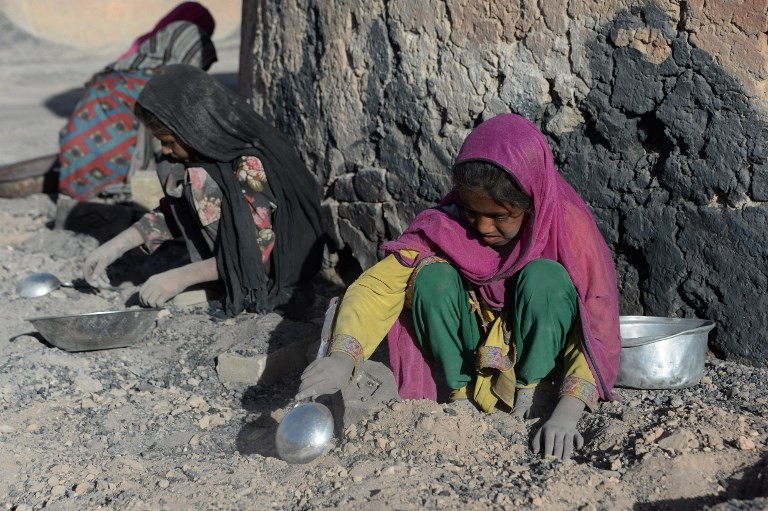Nearly half of Afghan children out of school: UN
Change Size
 In this photograph taken on June 1, 2018, Afghan children collect coal from a brick factory for their home on the outskirts of Kabul. (AFP/Noorullah Shirzada)
In this photograph taken on June 1, 2018, Afghan children collect coal from a brick factory for their home on the outskirts of Kabul. (AFP/Noorullah Shirzada)
N
early half of Afghanistan's children are not attending school because of worsening security, poverty and sex discrimination, according to a new UN report Sunday.
The number of children deprived of schooling is at its highest rate since 2002 -- the year after the US-led ouster of the repressive Taliban regime, which had banned girls from the classroom.
Girls remain more likely to miss out on a formal education, making up 60 percent of the 3.7 million children aged between seven and 17 not at school.
The figure rose as high as 85 percent in some of the worst-affected provinces, reflecting pervasive gender-based discrimination in parts of the deeply conservative Muslim country.
Child marriages and a shortage of female teachers were additional factors keeping girls away from the classroom.
The report by United Nations Children's Fund (UNICEF) also estimated that up to 300,000 children are at risk of dropping out before the end of the year.
Those children most at risk often live in rural areas and face displacement, insecurity and a lack of schooling facilities.
"Business as usual is not an option for Afghanistan if we are to fulfil the right to education for every child," UNICEF's Afghanistan representative Adele Khodr said.
"When children are not in school, they are at an increased danger of abuse, exploitation and recruitment."
While the numbers are worrying, the study also noted some progress.
It said school dropout rates are low in comparison to neighbouring countries such as Pakistan and Nepal, with some 85 per cent of Afghan boys and girls who start primary school going on to complete the last grade.
"Now is the time for a renewed commitment to provide girls and boys with the relevant learning opportunities they need to progress in life and to play a positive role in society," Khodr said.









